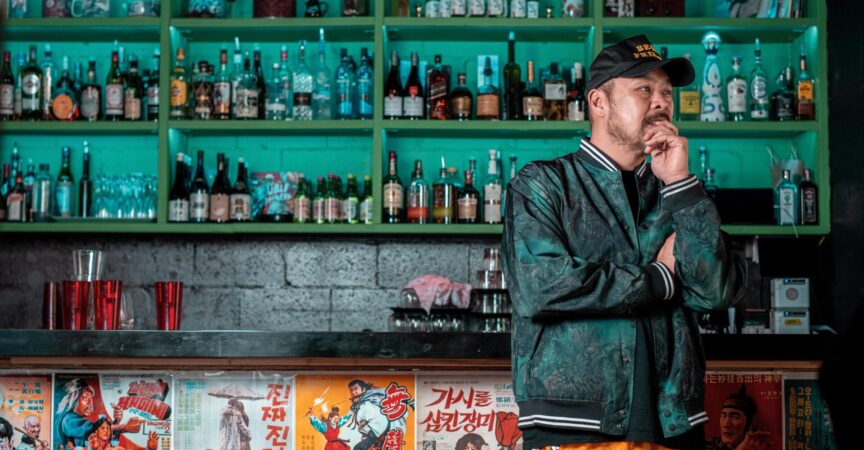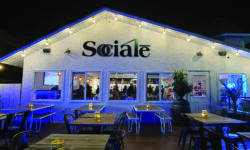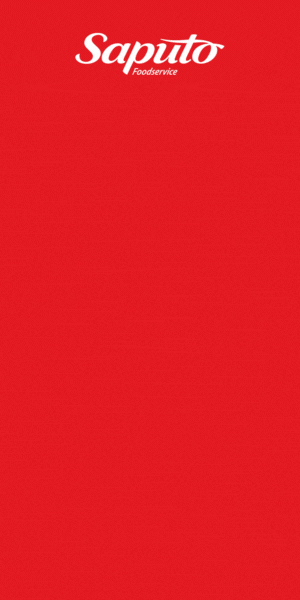Being Trevor Lui
This year’s Restaurants Canada Social Advocate Award was presented to Trevor Lui in recognition of his long-standing commitment to redefining and creating a more equitable and representative foodservice ecosystem. Lui’s success with restaurants like Superfresh, Yatai and Baobird, the launch of Quell, an agency focusing on showcasing and elevating BIPOC culinary talent, as well as his Taste Canada Award-shortlisted The Double Happiness Cookbook: 88 Feel-Good Recipes and Food Stories, allows Lui to do what he loves while opening doors and creating space for others.
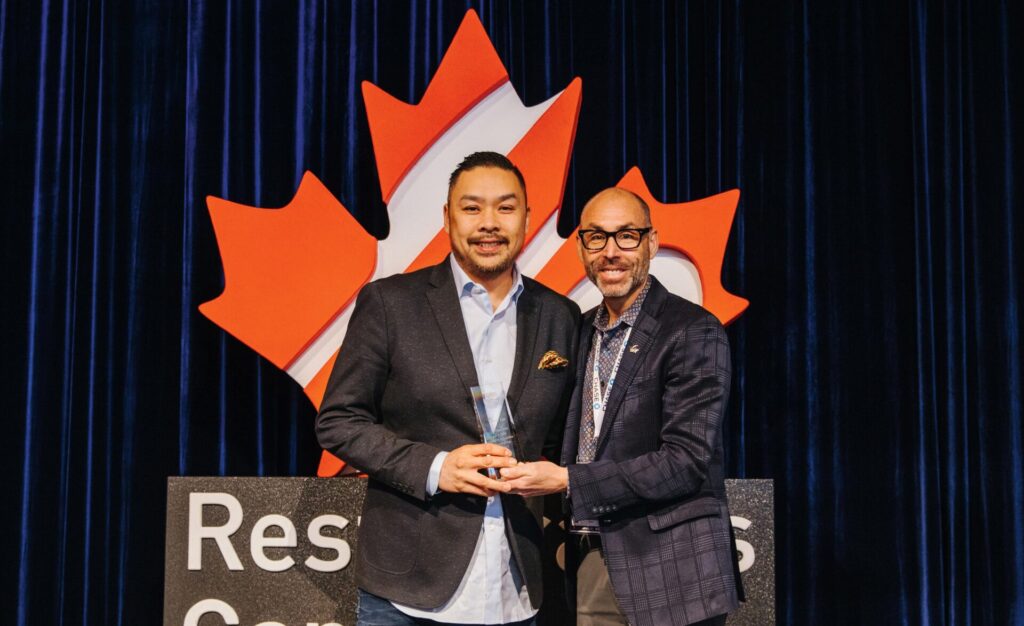
Before the doors open, as the kitchen starts to prepare for another busy evening, Trevor Lui stops for a moment in the middle of Superfresh, the new Asian night market concept restaurant in Toronto. Since the Chinese dragons ceremoniously welcomed the first customers in May with a dance down Bloor Street, diners have lined up, often for hours, to experience what Lui and his partners James Lee, Jae Pak and Dave Choi have created.
The buzz and excitement surrounding Superfresh represents the ongoing shift in the industry – to truly represent culture and food, without sacrificing authenticity and without apology. This shift is in part due to passionate leaders like Lui, who accept, acknowledge and celebrate their heritage and use their influence to educate and to empower, but also due to a larger audience who sees the world through a global lens, welcoming the opportunity to experience something new, or something that reminds them of home.
As the lights flicker on in the 4,000 square foot space and the music starts to spin, Lui looks around and says, “I think it’s important to understand how we built this place is a tribute to what we grew up with. It wasn’t until these last couple of years that we started to appreciate what we have as Asians, and what it means to grow up as an Asian immigrant in Western society.”
Growing up as the only son of immigrants from Hong Kong, Lui was taught–and lived–the standard ethos of those who chose to leave their home in search of a better future: work hard and be happy. Success is viewed as a linear path beginning with family, working hard and doing well at school, leading to a well-paying and respectful career. Lui had other plans. “It was bad enough I dropped out of university as the first one in my generation inthe family to make the jump to post secondary. I didn’t want to be a lawyer, doctor or accountant. But then I left the corporate job to create my own environment and a place where the ceiling isn’t determined by anyone but me.”
I think it’s important to understand how we built this place is a tribute to what we grew up with.
Through multiple successful (and several unsuccessful) restaurants, the opening of a culinary BIPOC talent agency, developing a line of retail goods and writing a cookbook, Lui has been driven to tell stories and create experiences that help people draw the line between food and culture. Bringing it all together in an experience that’s both authentic and urban, delicious and memorable is the throughline of Lui’s personality. From the old-school hip-hop playlists and pun-filled drink names at Kanpai Snack Bar, to the basketball jerseys hanging from the laundry lines at Superfresh and the colours and styles chosen for his brands, there’s a style and vibe that quietly marks it as a Trevor Lui creation. This brand ethos is mirrored in the food. “If you look at my catering menus, they’re nothing like you would see from a traditional catering company or hotel. You’ll get pancit, beef patties, empanadas, baos. It’s a reflection of who I am, growing up in Rexdale and seeing all this delicious, multicultural food and experiencing different cultures. If you don’t like what we serve, I’m okay with that. But this is who I am.”
Part of who Lui is includes providing opportunities for the next generation of hospitality professionals. For years, he has partnered with the culinary arts program led by Chef Keith Hoare at Thistletown Collegiate, a high school in his hometown of Rexdale, Ontario. High school students who have a passion for the industry work on different initiatives with a goal of experiencing international culinary travel. When Quell was launched, soon followed the launch of a bursary and mentorship program that focuses on the development of students as a way to reshape the industry and help eliminate the systemic inequities that exist not only in the industry, but in the larger ecosystem. Quell is now focused on working with like-minded businesses to develop incubator kitchens and practical learning forums for communities that traditionally have less access to such resources.
In early 2020 as news of a new virus found in China began to spread, there was a corresponding rise of anti-Asian racism, hate crimes and xenophobia. “There was a stigma of being Asian during COVID,” says Lui. “Most businesses suffered during COVID, and restaurants are on the top of that list. But if you were an Asian-owned business, then the loss was much greater and on a deeper level. No one thinks about the compression felt by Asian owners and how much was lost. Chinatown was a shell of itself months before the first lockdown was imposed and, in many aspects, still has not recovered.”
Instead of retreating, Lui looked to celebrate. Superfresh is a showcase of Asian culture, including common elements of Asian households used as décor. “Laundry racks, fluorescent garbage cans, baskets where we strained our clothes, taking your shoes off at the door and offering slippers, all of these things that we suppressed, we now celebrate,” says Lui. All of these are conversation starters in the restaurant, with many people recalling memories of these items in their homes growing up, and what traditions they still hold onto. “There’s a three-week argument on TikTok right now about the “Please remove your shoes” sign. But this is a good thing. “Through COVID and seeing all of this anti-Asian racism and hate crimes made me take stock of who I am – an Asian who lives in Canada. To bring the things in our homes into the open and to have conversations about them where people get to hear our stories and learn about our homes; I’m all for it.”
It wasn’t until these last couple of years that we started to appreciate what we have as Asians, and what it means to grow up as an Asian immigrant kid in Western society.
Through Superfresh, Lui and his partners have also created a cultural hub with community programming to showcase Asian creatives and events in Toronto. From hosting “Freshfest” in support of the Canadian Chinese Youth Athletic Association’s Celebrity Classic to holding ticketed live events in support of Asian Gold Ribbon, an anti-Asian-racism not-for-profit, Superfresh is not just a restaurant but a gathering place where all are welcome.
Superfresh is doing things differently. For instance, there are no reservations. “The risk is too high. There are so many no-shows; not everyone shows up at the same time. Some people don’t show with a reservation. Every single seat has a value to it.” COVID-19 has brought on other changes. “Customers are not always right,” states Lui. “To a certain extent, of course, there are things that go wrong over the course of a meal, but you won’t dictate to us how we run our business. You won’t be rude to our staff. If you want to go online and complain about us without talking to us, that’s your thing. But we prefer you talk to us so we can fix it while you’re here. But we don’t subscribe to an old-school mindset of the customer anymore. We’ve suffered so much through COVID to be here today.”
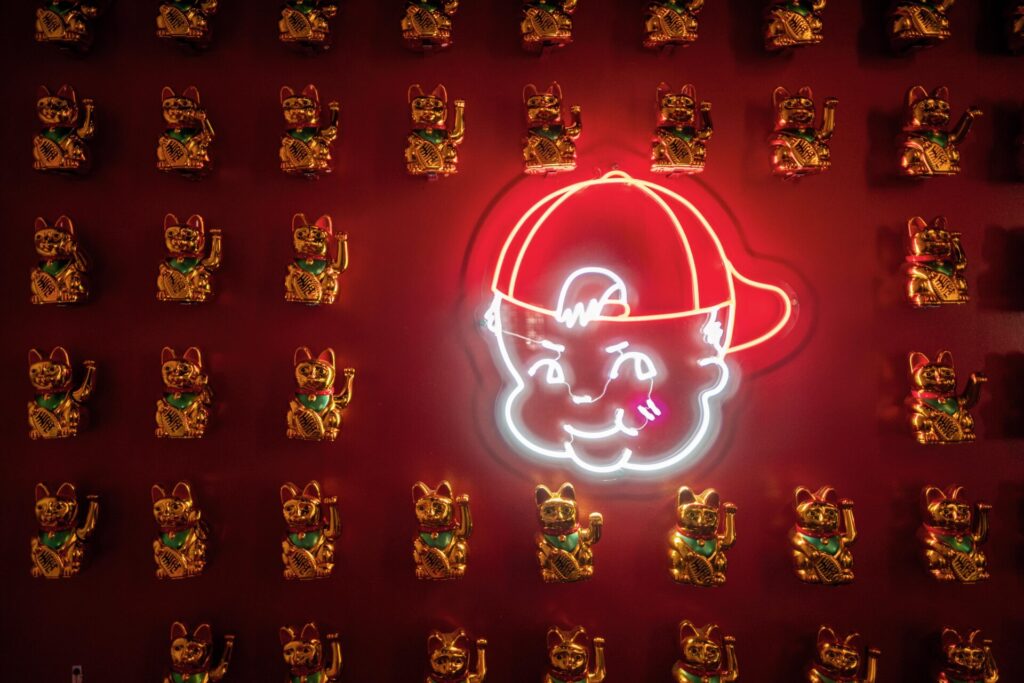
After being seated by the host, customers are assigned a number and a placard with a table number. “You scan the QR code, you see all the menus on your phone, and you tap on what you want, and then we bring it to you. It’s a little like starting a tab. You can split the tab, you can pay for someone else’s bill, all from your phone.” It’s also a way for customers to get served faster. “So, if you want a second drink, you just go into the app and press another Margarita and you’ll get your drink within five minutes. We all know that post COVID, there’s a challenge to get people back into food service. This helps us with labour.” The feedback from customers has been overwhelmingly positive. “They’re happy they don’t have to chase down a server for another drink or dish or wait at the bar. Sure, there are some people who prefer a menu, but when they get to see how ordering works, or that they can still get recommendations from their host and ask questions about the menu, they’re okay.” But, the reality is no one knows if anything will actually stick. “I’m certain somewhere along the line, we will need to make a shift or two to adapt to our customer and environment again.”
Developed by beverage expert Evelyn Chick, the Superfresh cocktail offering is inspired by Asian flavours and puts a twist on classic drinks. These drinks are on tap at Superfresh. “By putting our signature drinks on tap, customers don’t have the wait for their drinks,” says Lui. “The other benefit is that our drinks are consistent. They’re not dependent on who the bartender is any given night. Our staff can pour a drink on tap and garnish it properly.” But this also helps mitigate the ongoing labour shortage. “I think that we probably save on at least one bartender during the evening by having our feature drinks on tap. While we were more focused on efficiency and consistency, this has been a benefit during a labour shortage.” As well, Superfresh is home to one of the coveted Suntory Toki Highball machines, which dispenses chilled whisky and soda for highballs.
I left the corporate job to create my own environment and a place where the ceiling isn’t determined by anyone but me.
On Superfresh’s Instagram account, you’ll find the weekly password to access the Korean speakeasy in the back. You tell the host the password and you’ll be led to a secret room, with a distinctly different ambiance from the rest of the space. Sam Cha (which in Korean means – third round of drinks and that you’re in it for the night) has a separate food and beverage menu, seats 25 and is often just as busy. The success that’s followed Lui is not by accident. While most of it is due to his unrelenting work ethic, some of it comes down to timing. “When I think back even 10 years ago, we would not have been able to build a Superfresh and to have the reception it has had. We could not have built a PR strategy like we do now. Reach was much harder and traditional with less outlets. You had radio. Newspapers. TV if you were lucky. You had to pick up the phone, send an email and convince someone to come out.” With social media, things are different. “Word of mouth from our customers, most of whom are on social media, or having a space that is interesting and different helps,” states Lui. “It’s a very different approach from what we’ve done in the past, and more restaurants can take advantage of it.”
Lui believes that the self-reflection that came out of COVID and the rise of anti-Asian sentiment has made his resolve to bring people together through shared food and experiences even stronger. Looking around Superfresh, Lui says, “How do we cross over? There’s a lot of tongue in cheek references here, some of it based on trauma that we’ve experienced growing up – comments about our food, our icons, or fake luxury goods. But really, this place is our way to pay our respects and acknowledge those who paved the way.”



